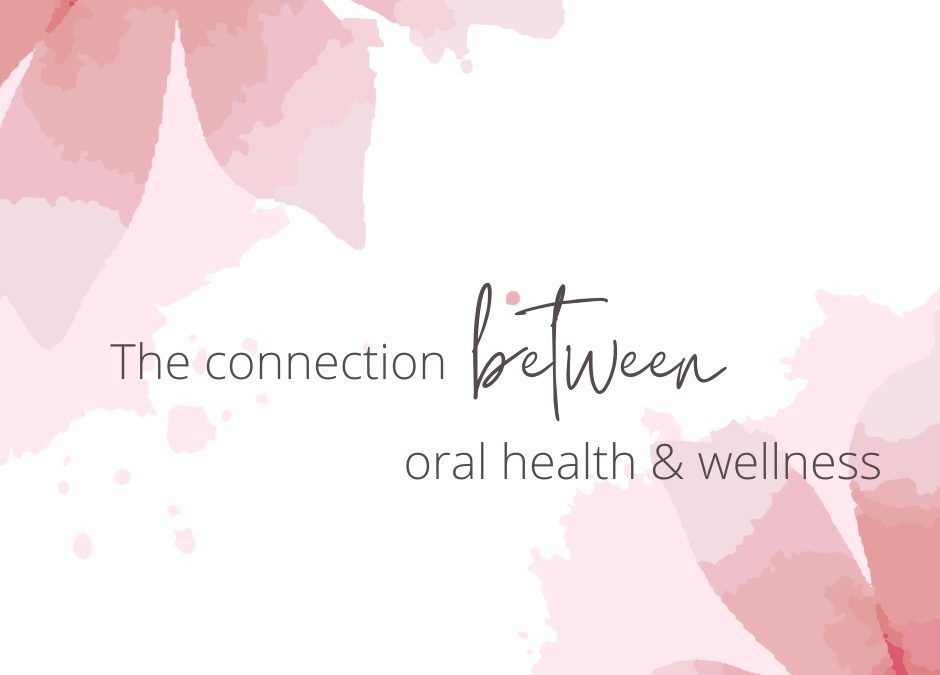
Jul 2, 2023
At FDA, we don’t just see your smile, we see you as a whole person. That’s because when it comes to improving your overall health, oral care is the gateway. Studies show that problems with your teeth and gums are linked with other health concerns like cardiovascular disease and diabetes. This means that brushing and flossing daily is a practice that will benefit you beyond just keeping your teeth clean and healthy…it benefits your whole body! Your dentist – Dr. Brunacini and Dr. Karagiorgos – can be a part of your health care team and help you set up an oral health plan that takes your whole body’s well-being into account. Here is a deeper look at some of the ways your oral health and general health are connected.
Cardiovascular Disease
This term refers to a group of disorders related to your heart and your blood vessels. According to the Cleveland Clinic, having poor oral health is associated with forms of cardiovascular disease like:
- Coronary artery disease: This is the most common type of heart disease and can lead to heart attack. It’s the leading cause of death in the United States.
- Clogged arteries: Studies show that people with periodontal disease have significantly higher rates of atherosclerosis, or plaque build up inside the blood vessels that deliver blood and oxygen from your heart to your body.
- Stroke: Studies show a correlation between periodontal disease and strokes, specifically strokes related to atherosclerosis.
Diabetes
Diabetes increases your risk of dental diseases. One place you may experience symptoms is in your mouth. Some of the most common oral symptoms include:
- Dry mouth: People with diabetes often have less saliva in their mouth so you may find yourself being parched.
- Gum disease: If you notice bleeding when you brush or floss, you may have gum disease. Research shows keeping your blood sugar under control can help improve gum disease.
- Problems with taste: You may begin to notice that food tastes differently from the way you remember, particularly sweet foods. If you have a persistent bad taste in your mouth, please come see us.
- Periodontal disease: Nearly 22% of all diabetics develop this dental disease. It is a chronic, inflammatory condition that can destroy your gums and bone, and can also lead to increased blood sugar levels. Early signs include bad breath, swollen gums, and painful chewing.
Your health is important to us and we are committed to giving you the best care possible. As part of your care, the FDA team of caring and compassionate professionals will ask about your health history, medications, as well as your needs and questions as we put together a treatment plan for you. Our goal is to build a partnership with you as we make sure your mouth is healthy and supporting your overall health needs. If you have questions or concerns about your oral health, or need to schedule your next appointment, please give us a call at 207.781.5900.

Nov 2, 2022
6 Tooth-friendly tips for Thanksgiving!
At Falmouth Dental Arts, we are so grateful for our patients and our team of compassionate dental professionals! Our goal is to develop a partnership with you and we want you to have a healthy smile all year round. That’s why, in addition to visiting us at least twice a year, we encourage our patients to follow a good oral health routine at home, which goes beyond the toothbrush and includes a healthy diet and lifestyle choices.. Here are 6 tips to show your teeth some gratitude on Thanksgiving and every day!
1) Quit Smoking
November is National Smoke Out Month, so it’s a great time to make a commitment to quit smoking and vaping for your oral health and general wellness. Not only does smoking and using other tobacco products cause damage to your teeth and gums, but it also has the potential to weaken your immune system and raise your risk of oral and other cancers. For resources to quit smoking, visit the American Cancer Society and let Dr. Brunacini or Dr. Karagiorgos know so they can support you as well!
2) Don’t Use Your Teeth as a Tool
You don’t want to have a dental emergency in the middle of your Thanksgiving festivities, so refrain from using your teeth as a nutcracker, ice crusher, or bottle opener (no matter how impressive these skills may be)!
3) Choose Tooth-Friendly Foods
There are so many delicious foods to choose from on Turkey Day, but which ones will do your teeth some good? A healthy diet is an important part of your oral health, and fortunately there are a lot of tasty options that will support your chompers as you feast.
Turkey is high in protein, calcium, and vitamin D, making it a great choice. Fresh and cooked veggies also get a green light. Munch on other healthy snacks like cheese, nuts, and fresh fruit.
4) Drink Water
A good rule of thumb for Thanksgiving and every day is to drink plenty of water. Water is great for your digestion and overall wellness and it’s also a great drink choice to have with meals. This is because water washes away any debris left behind after eating and reduces bacteria. So make sure you guzzle some water as you gobble your turkey!
5) Brush and Floss After the Big Meal
Don’t feel too guilty about eating lots of sweets or having an extra glass of wine on this special day – just remember to brush and floss your teeth after you finish eating or at the end of the day! Link to the toothbush post for tips!
6) Chew Gum
If you are not at home for the holiday and can’t brush and floss after your meal, chewing sugar-free gum can help; gum can clean your mouth by producing extra saliva that can wash food particles away. Then when you do return home, you can go through your regular routine.
We hope you have a wonderful Thanksgiving with your family and friends. Thank you for being a part of the FDA family! If you have any questions for Dr. Brunacini or Dr. Karagiorgos about your oral health routine or need to make an appointment, give us a call at 207.781.5900, as we’re here to help!

Jul 20, 2021
With Independence Day celebrations kicking off the month of July, we felt inspired by all the patriotic colors! Eating a variety of nutrient-rich foods promotes healthy gums and teeth, and incorporating a little red, white, and blue into your diet is a fun way to support your oral health! We love sharing the ways in which a healthy diet is connected to a healthy mouth! Here are some foods that will help you celebrate America and celebrate oral health.
RED
What food immediately comes to mind when you think of red and summertime? Strawberries! These juicy delights are packed with vitamin C and antioxidants which support tissue growth and repair all over your body, including your mouth. Vitamin C also helps maintain the strength and structure of the dentin in your teeth. Strawberries contain malic acid as well, which naturally whitens the teeth. Load up your morning cereal and snack to your heart’s content with these summer beauties and your teeth will thank you!
WHITE
Get yourself to the dairy aisle and stock up on some cheese, milk, and yogurt for a snack that really packs an oral health punch! Beyond calcium, which supports strong teeth and bones, these dairy products have additional benefits for your mouth. Cheese contains casein, a protein that helps fortify tooth enamel. Also, chewing cheese helps increase saliva production which washes away the cavity-causing bacteria in your mouth. Meanwhile, drinking milk can lower the acid levels in your mouth, which in turn helps prevent tooth decay. The probiotics in yogurt protect your mouth from cavities, gum disease, and even bad breath. Sounds like a win, win, win!
BLUE
We’re going a little outside of the box for this color, and diving into the deep, blue ocean. The bounty of the sea is a wonderful addition to a healthy diet. Specifically, incorporating fish that are high in vitamin D is excellent for your oral health as they aid in calcium absorption. Fish such as mackerel, sardines, and salmon are also great sources of Omega-3s which have been shown to reduce gum disease. Holy mackerel!
Do you have any favorite red, white, and blue healthy snacks to share? Give us a shout on Facebook or let us know at your next appointment! We are here to support your oral health!
Happy Summer! 🙂
Jan 22, 2020
Dieting is a popular New Year’s Resolution. This year, why not take a dental approach to the traditional diet? The team at Falmouth Dental Arts has whipped up the perfect plate–and poured a cuppa– for your pearly whites.

Dairy: Cheese and yogurt both contain Vitamin D, which helps your body absorb calcium. This mineral is just as important for your teeth as it is for your bones; calcium-deficient diets suffer from underdeveloped teeth, gum disease, and tooth decay. Cheeses and yogurts address your need for Vitamin D, and boast the added bonus of counteracting acid erosion of teeth, making them excellent options to end a meal. Cheese for dessert, anyone? **Dairy allergies? Fatty fish such as salmon are also a wonderful source of Vitamin D.

Oranges: Surprise! Although citrus fruits contain erosive acids, they pack a powerful punch of Vitamin C, which encourages collagen production and strengthens tissue and blood vessels. Increased collagen, stronger tissue and better blood flow means stronger gums and happier homes for your teeth. An orange a day keeps the periodontist away–just make sure to wait at least 30 minutes between eating and brushing to minimize acid erosion.

Fruits and Veggies: Looking for another reason to make a salad? High-fiber leafy greens act as natural toothbrushes, scrubbing your teeth while you eat and encouraging saliva production. Meanwhile, the high-water content of traditional lettuces help rinse your mouth. Carrots and celery are also excellent snack options, washing your teeth with every crunch! For tooth-conscious options from the fruit bowl, choose apples and strawberries. Apples offer the same healthy crunch benefits as snappy vegetables, while strawberries actually contain malic acid, a natural enamel whitener.
 Tea: Black and green teas contain compounds called “polyphenols”. Polyphenols ward off bacteria responsible for cavities and gum disease. Less bacteria means fewer cavities and less bad breath. When combined with other good dental habits, drinking tea can cure halitosis, so drink up and breathe easy.
Tea: Black and green teas contain compounds called “polyphenols”. Polyphenols ward off bacteria responsible for cavities and gum disease. Less bacteria means fewer cavities and less bad breath. When combined with other good dental habits, drinking tea can cure halitosis, so drink up and breathe easy.
While a balanced diet represents one facet of your dental health, you can’t substitute twice-daily brushing and flossing with apples and carrots. Falmouth Dental Arts encourages you to the best of both worlds! If you have any questions about the best foods for your teeth, just ask us at your next appointment. To schedule your appointment, please call our office at 207.781.5900.
Jan 15, 2018
We all know how food choices affect the body, but did you know they also affect oral health? It may not be as evident, but if you were to examine your mouth on a cellular level, you would find a wealth of health information there, often before health problems manifest elsewhere in your body. With that in mind, we’d like to share some dietary nutrients that impact your oral health, and offer some recommendations to improve your diet and your oral health.
Vitamins & Nutrients to Support Oral Health
So what did we mean when we said that you can detect health issues by analyzing your mouth? Well, our mouths contain special cells called mucosal cells, and they generally have a life cycle of 3-7 days. This means that they’re turning over and regenerating frequently, and providing up to date information on the rest of your system. So the first place you’ll be able to find nutritional surplus or deficiency is in your mouth! With this in mind, we wanted to share some nutritional findings that can help support oral (and overall) health.
- Protein, calcium, and phosphorus contribute to strong tooth structure. You can get protein from a wide variety of foods depending on your diet. Calcium can be found in almonds, broccoli, oranges, and cheese, while phosphorus can be found in a number of dairy, fish, and meat products. You could also opt to get phosphorus from certain nuts and beans.
- Nutrients like zinc, folate, iron, vitamins A, C, and D, Omega-3 fats, and antioxidants contribute to the development of mucosal cells and connective tissues as well as immune function. B vitamins support epithelial cell turnover.
- Studies have suggested that low levels of folate are associated with periodontal disease, so make sure you’re getting enough from foods like dark leafy greens, beans, peas, & lentils, or citrus fruits.
- Studies suggest that vitamin D and calcium may also enhance enamel remineralization. To support your usual hygiene efforts and strengthen enamel, snack on cheese, yogurt, tofu, salmon, or milk!
- Vitamin C also has been reported to help collagen maturation, which in turn helps maintain the integrity of the periodontal ligament. For this, make sure to have a share of strawberries, acerola cherries, bell peppers, or citrus fruit!
- Lastly, Omega-3 fats help with inflammatory response in the body. Mackerel, salmon, oysters, sardines, and anchovies have omega-3 fats in abundance. Not up for sea fare? Try working flaxseeds, chia seeds, or walnuts into your diet. Alternatively, you can opt for a fish oil supplement!
It’s important to keep in mind that each of these nutrients might have different outcomes for individuals based on their respective health situations. Be sure to consult a doctor before making any major dietary changes and to ensure there won’t be any adverse effects.
If we’ve gotten you thinking about diet and oral health, make sure to bring your questions or concerns to your next appointment! We are happy to advise you more on the subject and we look forward to it!







 Tea:
Tea: